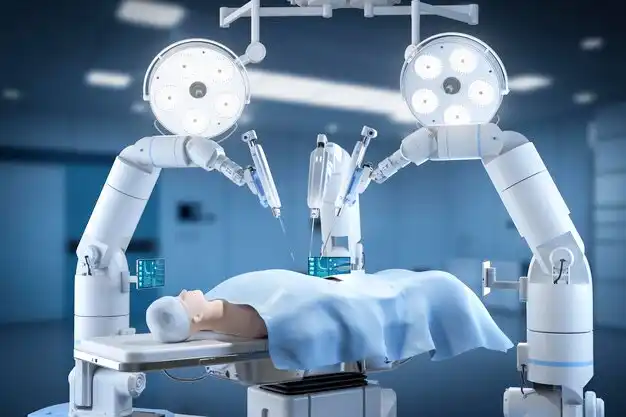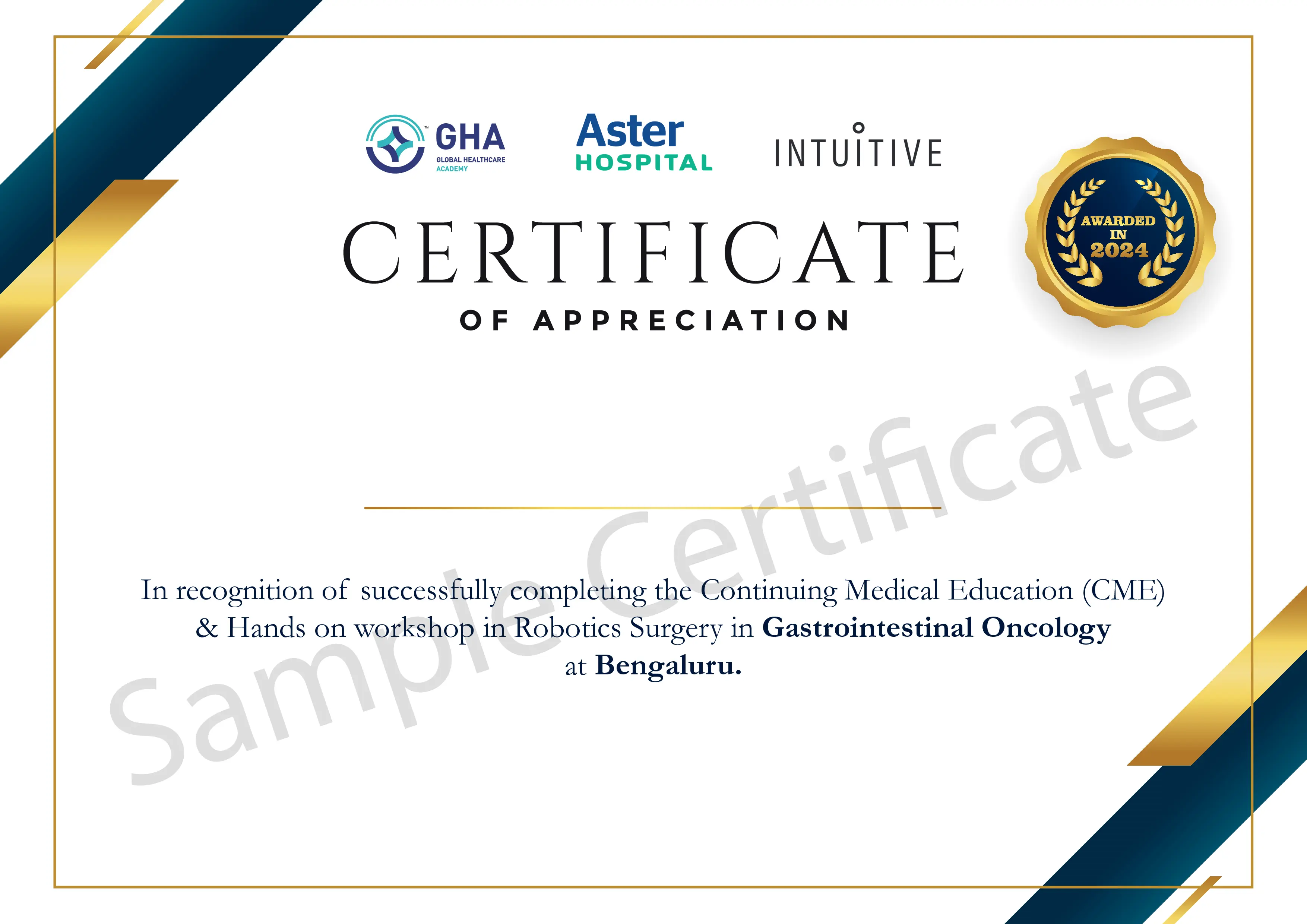Robotics in Gastrointestinal
Robotics in GI Surgery Course is intended for medical practitioners who want to advance robotic surgery techniques. This Robotic GI course focuses on Robotic Gastrointestinal operations and key developments highlighting the use of technology in improving the performance of surgery and outcome of patients. As a clinical and theoretical course, the program arms the participants with the ability required for safe and efficient robotically aided surgical operations in operations of the gastrointestinal tract.
Offline
2 Days
General surgeon , urologist , surgical oncologist
About courses
- Understand surgical technique for safe and effective robotic surgery
- Calibrate and troubleshoot robot set-up
- Apply retractor settings and port placements
- Demonstrate efficient communication and collaboration skills
- Proficiency in robotic GI surgery
- Knowledge of the handling and troubleshooting of the robotic instruments.
- Development for Situational awareness to avoid human errors during surgery.
- Improve the teamwork and communication skills working in the operation room
- Keep pace with the newer application of robotic technology.
- Apply knowledge of robotic surgical techniques using the technology base in GI cancer cases.
- Case-based learning through clinical scenario scenarios
- Hands on skill building in a dry lab
- Simulation-based training
- Workshops on nontechnical skills relating to teamwork and collaboration
- Expert tutorials in robotic surgery advancements
- Debriefing sessions that may ensure encapsulation of learning experiences.
Course Directors

o Dr. Jagannath Dixit
Course DirectorHead and Lead Consultant – Department of Surgical Oncology Programme Director – Robotics
Course Curriculum
01 Module 1 - Introduction to Robotic Program
Fundamentals of Robotic Surgery (FRS)
Human Factors: Situational Awareness in robotic
Operation Theatre
Human Factors: Errors & Violations
02 Module 2 - Robot set-up
Start up and calibration
Docking sequence, Instrumentation
Types of retractors and retractor setting
Patient cart positioning, port placement
Troubleshooting
03 Module 3 - Technical skills development
Dry lab (skill development model)
Retractor setting on Mannequin
Simulation Skill Development
04 Module 4 - Non-Technical Skills development
Team Training Workshop
Simulation Team Training
Briefing & Debriefing
Communication Skill Development
FREQUENTLY ASKED QUESTIONS
01 What are the benefits of taking an online course?
Online courses offer flexibility, allowing you to learn at your own pace and on your own schedule. They also provide access to a wide range of subjects and expert instructors from around the world.
02 How do I enroll in a course?
Enrollment is simple. Browse our course, select the course you’re interested in, and follow the instructions to register. You may need to create an account or log in to complete your enrollment.
03 What are the technical requirements for taking an online course?
You will need a reliable internet connection, a computer or mobile device, and a modern web browser.
04 Are there any prerequisites for the courses?
Prerequisites vary by course. Check the course description or syllabus for any required skills or prior knowledge needed before enrolling.
05 How is the course content delivered?
Course content is typically delivered through video lectures, readings, quizzes, and interactive activities. Some courses may also include live sessions or discussion forums.
06 Will I receive a certificate upon completion?
Yes, we offer a certificate of completion.
07 How long will it take to complete a course?
Course duration varies. You can find the estimated time to complete each course in the course description. Self-paced courses allow you to complete them at your own speed.
08 What if I need help during the course?
Our support team is available to assist with any technical issues or course-related questions. Additionally, many courses offer forums or discussion boards where you can seek help from instructors and fellow learners.
09 Can I access the course materials after I finish the course?
Access to course materials after completion varies by course. Some courses offer lifetime access, while others may have a limited access period.
10 What is the refund policy?
Refund policies vary by course. Please review the refund policy in the course description or contact our support team for specific details.


